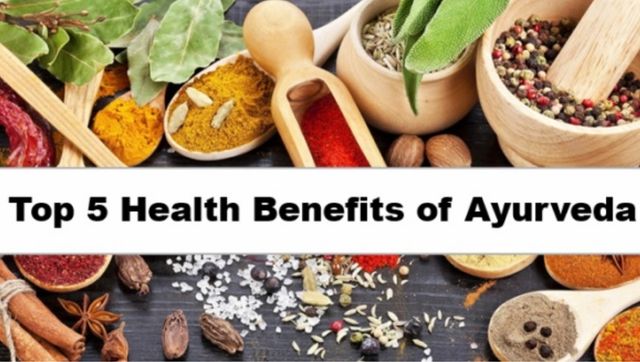Ayurveda, known as the “Sister Science” to yoga, is an ancient science that is holistic in nature. Having been around for over 5,000 years, the main focus of Ayurveda is to focus on your life in-between the emotional and physical self. Ayurvedic herbs are a key component of Ayurveda, the traditional practice of medicine of India. Practitioners will generally use ayurvedic herbs to “cleanse” the body, boost defense against disease, and keep the mind, body, and spirit in balance.
According to Ayurveda, five elements make up the universe — vayu (air), jala (water), akash (space), teja (fire), and prithvi (earth). The three doshas, vata, pitta and kapha, are one of the main bases of ayurveda. So, each person is a specific type of dosha. Then, you can find what is your type of dosha according to your physical characteristics. Also, a guide will help you with the specific treatment that you need. The guide will take into account, the 24 cosmic principles and the 8 disciplines of this medical system.
How does it work?
The Ayurvedic diet is a type of eating plan that sets guidelines for when, how, and what you should eat based on your dosha, or body type.
What are the three Ayurvedic body types?
1. Vata (air + space).
Vata energy is associated with air and space, and is linked to bodily movement, including breathing and blood circulation. Vata energy is said to predominate in people who are lively, creative, original thinkers. When out-of-balance, vata types can endure joint pain, constipation, dry skin, anxiety and other ailments.
2. Pitta (fire + water).
Pitta is the energy force that governs most metabolic activity, including digestion, absorption of nutrients, body temperature and energy expenditure. Pitta types tend to be smart, hard-working and driven (even competitive) when in balance but can be overly angry and aggressive when they’re not. They tend to have a medium build, be athletic and are versatile in terms of putting on weight or muscle.
3. Kapha (earth + water).
Naturally calm, grounded, and loyal. Those with a kapha dosha often have a sturdier frame and may have issues with weight gain, asthma, depression, or diabetes.
Benefits of Ayurveda:
– Cleanse the Body:
Ayurvedic medicine promotes internal cleansing for improved health. Panchakarma in Ayurveda is the practice of eliminating bodily toxins through enemas, oil massages, blood letting, purgation, and other oral administration. A cleansed body in turn aids for improved overall health.
– Reduces stress:
Since stress has a widespread impact on health. The practitioner of Ayurvedic medicine uses different natural techniques to treat the symptoms of anxiety and depression. Decrease cortisol and rebalance “energy.” Yoga improves the autonomic nervous system making your mind alert, so you can focus well and stay energized throughout the day. Several reports even suggest that yoga is beneficial for physical health of cancer patients and can effectively fight free radical damage.
– Weight Loss and Maintenance:
While weight loss isn’t a main concern, Ayurvedic medicine promotes shedding excess weight by consuming a natural and healthy diet. A 2009 study conducted by the NutriHealth Systems Center in New Delhi, India, found that adjusting someone’s healthy diet to take into account individual food preferences and needs helped participants lose weight effectively. Consult a practitioner to determine the best diet that will suit your nutritional needs and work with your dosha type.
– Healthy and Glowing Skin:
Healthy skin is beautiful skin. When we use the harsh chemicals found in so many commercial skin care products, we so mistreat our skin that we may feel compelled to the further use of harsh chemicals to help mask the damage done. Ayurveda has a ton of proven tricks to help keep your skin soft and radiant without spending money. Consuming veggies like cucumber, lettuce, and daikon radish are easier to digest because of their purifying properties and high-water content.
– Reduce Symptoms of Illness and Disease:
Recent research supports Ayurvedic ideas about the immune system and its role in healing. By targeting inflammation, which is the root of most diseases, Ayurvedic medicine — along with Ayurveda yoga and Ayurveda massage — can help lower pain and swelling, improve blood flow and fight inflammatory conditions like arthritis and fibromyalgia just as well as medication. Ayurvedic herbs and essential oils help increase blood flow, compliment blood circulation, and draws out toxins from the body through the skin.




